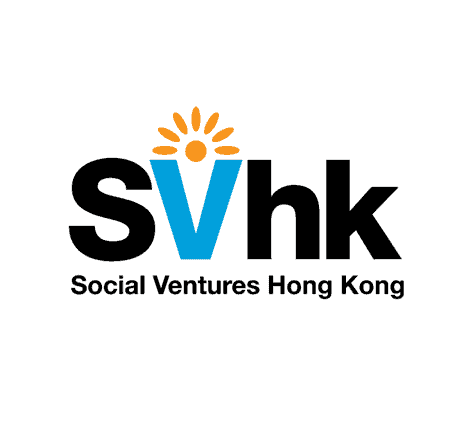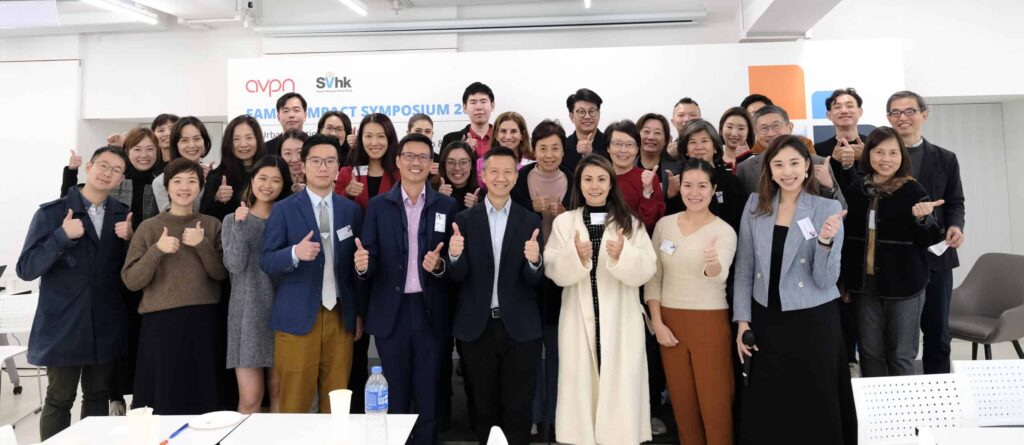5 minutes read
Family-led capital is poised to be the social innovation catalyst across Northeast Asia. With an estimated up to USD 450 million of Northeast Asian family wealth ready for investing in social impact by 2030, a substantial 80% increase from 2023, there is an immense pool of capital that can be mobilised as a stimulus for social progress. Innately value-driven with its tight-knit setting, family-led capital is nimbler than other forms of capital such as institutional or public capital. Its reactive flex to social challenge is not limited by forms of capital deployment, ranging from strategic philanthropy to impact investing. Simultaneously, Northeast Asian cities are facing increasingly similar social challenges including ageing populations, unaffordable housing, narrow development pathways for youths to climate change. AVPN and Social Ventures Hong Kong (SVhk) therefore have teamed up to organise Family Impact Symposium 2024, bringing together over 50 resources owners across 5 Northeast Asian cities to discuss how they can better utilise their resources for such pressing challenges. The following shed lights on how families can get involved in addressing urban social challenges head-on.
Understanding local nuances is the essential first step for engaging in social impact
The first step for any families and their associates to be engaged in social impact is taking the time and mind to understand local nuances. As Anthonia Hui, CEO and Head of Singapore at AlTi Tiedemann Global has put it, we must put down our ego and resist the urge to impose our own approach onto the community that we seek to invest and grow. Only through gaining on-the-ground experience can we prevent parachute philanthropy from taking place and producing negative, unintended outcomes.
At the Symposium, we have immersed delegates into three different neighbourhoods in Hong Kong to observe the challenge and the progress, with support from family-led capital. For instance, delegates have visited subdivided units (flats that are typically smaller than 100 square feet) in Sham Shui Po and learnt about how family foundations like the Chow Tai Fook Charity Foundation have catalysed the social housing movement that has been later adopted by the government to build transitional housing at scale, transforming vacant government lands to plots for modular housing buildings.
Some participants shared that the experience had shown them “another face of Hong Kong”. This initial shock was not to put participants in the liberator position; rather, it created the opportunity for exchange and dialogue between locals and families. If you are in the exploration stage of your impact journey, we would recommend that you do the same and take observations in the community before setting out your approach to impact.
Building trust and alignment are cornerstones of meaningful impact
Trust and alignment with both internal and external stakeholders is critical in creating meaningful impact. While trust-based philanthropy is conventionally understood in the context of funder-fundee relationships, it is also applicable to internal management of family offices/foundations. The D. H. Chen Foundation shared how trust is integral to their teamwork. With a trust from the board of trustees and family members in the programme team, the Foundation was able to co-create programmes such as Future Education in Action (FEiA) with its impact organisation and schools as partners. The trust gives way for flexibility, which becomes even more critical in the time of uncertainty. FEiA had to undergo tumultuous changes because of COVID-19, which made 100% in-person teaching impossible for three years in Hong Kong when it was set up to be implemented in two schools. As shared by Ruby Yong, Program Director of the Foundation, the trust from the Foundation’s Board in their Programme Team and partners, stemming from a recognition in the partners’ lived experiences and knowledge, led to compassion, agility and adaptability amid the challenging circumstances then.
Trust is multi-dimensional. From an organisational perspective, Annie Chen from RS Group stressed the importance of investing in organisations themselves. Projects have a fixed term, but organisations need support to realise their long-term mission. For families getting started in impact, the lessons to take is to put their trust in value-aligned partners and take a long-term horizon perspective to catalyse changes over time.
Harnessing collaborations for regional innovation through inter-city dialogues
Collaborations can go beyond co-funding opportunities to incorporate more inter-city dialogues, so that we can expose ourselves to new innovations. While funders in Hong Kong have organised thematic alliances such as ageing well and education, such alliances can have a greater impact on a regional scale with cities facing similar challenges. At the Symposium, we had the opportunity to compare Hong Kong and Taipei’s experience in pioneering social housing as a mean for social empowerment, and discussed both city’s similar challenges in making urban renewal an equitable process for the communities. It is through this cross-city examination that we could (re)discover how urban social challenges are interwoven with one another and inspire new innovations in our home cities as we synthesise our learnings across the board. Families can also get to be a part of a community of practice and rely on each other for mutual support and advice!
Taking the first steps of in an impact journey
The Symposium was an opportunity for families to exchange their journeys with one another. For families who are just starting out, you can now be more confident in making the first stride – by actively understanding local nuances, constant engagement with stakeholders and staying connected with allies for new inspirations. Our participating families would be more than happy to have you to be part of their impact journey, and they have teamed up with us to consolidate our observations in the form of a guidebook, titled Urban Solutions Action Playbook, scheduled for release in April 2024. Stay tuned for publication details from the AVPN team, and we look forward to exchanging stories and thoughts with you.


















